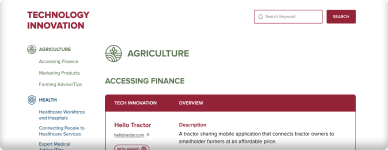Côte D’Ivoire Education Minister, Kandia Camara, is the first winner of the Harvard Ministerial Medal of Achievement. When Minister Camara was invited to participate in the annual Harvard Ministerial Leadership Forum in June 2018, she had been in office for seven years already, but she faced an uphill struggle. She because Minister in the wake of a devastatingly destructive 10-year civil war. Despite significant resources allocated to rebuilding the education system in the years after the civil war, enrollment rates and outcomes remained well below national targets and international standards.
Minister Camara came to Harvard with a 10-year sector plan that included a strategic focus on “accelerating the development of human capital and the promotion of social wellbeing” as well as a target education budget of 6% of GDP. What the Minister needed was a roadmap for how to achieve this broad goal. A core element of the Ministerial Forum curriculum is focus on legacy, as the defining strategic objective of Ministers’ tenure in office. Legacy must focus on a clearly defined national priority, with measurable targets and achievable within set timelines. At the end of an intensive week at Harvard, Minister Camara had a clear and motivating legacy goal: Achieve a school enrollment rate of 100% by 2025 and improve the quality of education to ensure a literate population with the necessary skills for the development of our country.
Defining legacy provides strategic focus for Ministers, but implementing the legacy is the greater challenge. Ministers leave Harvard with a high-level implementation plan. The onus is on the Ministers to organize their Ministry to deliver on their legacy goals. When she returned to Côte D’Ivoire, Min. Camara appointed a leadership team to operationalize her legacy goal. The Minister also tapped into the post-Harvard technical support offered by the Ministerial Program, including requiring her leadership team to sign up to the Virtual Implementation Platform (VIP) an on-line technical support resource for strategic planning and legacy implementation. Over a period of three months, using the VIP tools, the leadership team developed a high-level operational plan to achieve the Minister’s legacy goal as outlined below.
Twelve months later, Min. Camara was able to report rapid acceleration in meeting critical education goals including 100% primary school enrollment, and increasing completion rates from 54% to 81% rate and the completion rate from 54% to 81%. In accepting the 2018 Harvard Ministerial Medal for Ministerial Achievement, Kandia Camara said: “Our goal was to use the Harvard post-follow-up, not just to undergo a strategic and operational planning exercise, but to give the national education system decisive impetus that will put it in position to contribute more effectively to the challenges of citizenship, skills and employability.” She added, “We are committed to leaving posterity a positive and profound mark of our transition to the education and training department of our country. This is the meaning of the term ‘legacy goal’ whose definition on the one hand and the search for ways and means of its realization on the other hand are the main goal of the Harvard Ministerial Leadership Program.”
from 54% to 81% rate and the completion rate from 54% to 81%. In accepting the 2018 Harvard Ministerial Medal for Ministerial Achievement, Kandia Camara said: “Our goal was to use the Harvard post-follow-up, not just to undergo a strategic and operational planning exercise, but to give the national education system decisive impetus that will put it in position to contribute more effectively to the challenges of citizenship, skills and employability.” She added, “We are committed to leaving posterity a positive and profound mark of our transition to the education and training department of our country. This is the meaning of the term ‘legacy goal’ whose definition on the one hand and the search for ways and means of its realization on the other hand are the main goal of the Harvard Ministerial Leadership Program.”


